Science

Intent
At New Bewerley Community School, we aim to provide a Science curriculum that supports children to become passionate and well-rounded scientists, who recognise the importance of Science in every aspect of their daily lives. By developing children’s natural curiosity and sense of wonder, we foster respect for living organisms and the physical environment. Through a varied and inspiring curriculum, children will gain a thorough knowledge and understanding of the world around them, as well as acquiring specific skills to support scientific thinking and reasoning. Children are encouraged to be inquisitive, ask and answer questions, and reflect on their learning – skills that can be applied both across the curriculum and beyond the classroom. Our science curriculum supports our children to develop a rich range of scientific vocabulary, which grows and expands as they advance through school. As a school, we endeavour for science to be viewed as an exciting subject which inspires children and for our pupils to believe that everyone (and anyone) can be a scientist, regardless of gender, nationality, race or background.
Implementation
EYFS:
In the Early Years Foundation Stage (EYFS), Science is introduced through the Understanding the World area of Development Matters.
In EYFS, children:
- Explore and describe the world around them, e.g. experimenting with different materials to find out if they are hard or soft, sink or float
- Make observations, e.g. commenting on and describing changes in the weather
- Consider similarities and differences, e.g. between the natural world around them and other contrasting environments
- Communicate their understanding through pictures and words - spoken or written, e.g. drawing pictures of animals and plants
- Ask questions and try to answer them (with appropriate support, scaffolding and resources)
- Read and listen to books which help to develop their understanding of the world
Year 1 – 6:
Science teaching should inspire pupils to want to learn more about the world around them and develop their scientific knowledge and understanding. Children should be encouraged to think critically and explore what it means to be a scientist by developing their understanding of different scientific enquiry skills and approaches.
Substantive Knowledge:
The Developing Experts curriculum supports children to learn about the foundations of Biology, Chemistry and Physics. The focus on biology ensures children have a thorough understanding of themselves and the world in which they live. Our spiral curriculum means that children revisit and build-on prior knowledge throughout the primary curriculum and are prepared for their futures (with relevant knowledge and understanding) at high school and beyond.
Disciplinary Knowledge:
Children will learn a range of Working Scientifically skills through exploring a range of enquiry approaches within their lessons, Developing Experts refer to as ‘Mission Assignments’.
The enquiry skills are:
- Comparative/ fair testing
- Research
- Observation over time
- Pattern-seeking
- Identifying, grouping and classifying
- Problem-solving
Example of a Knowledge Organiser - Y4
Example of a Knowledge Organiser - Y2Impact
In line with our core values: Every Child, Everyday... Engaged in Learning, Prepared for Their Future, Nurtured for Growth our Science curriculum is designed to ensure that children are actively engaged in their learning through hands-on, practical ‘Mission Assignments’ which not only helps them to develop knowledge and skills, but also enables them understand the world in which they live and be prepared for their future. Developing Experts, alongside our own Personal Development curriculum (including an Upper Key Stage 2 Careers Fair), helps children to recognise that anyone can be a scientist and aims to inspire our pupils to consider STEM-related careers.
The skills children learn in Science help them to be confident in critical-thinking and problem-solving and these skills are useful in other subjects and in their every day lives. We nurture growth, by providing a curriculum which promotes the school’s 5Cs: collaborate, contribute, commit, create and celebrate and encouraging children to become responsible citizens who show respect to themselves, each other and the environment by having a thorough understanding of Animals including Humans, Living Things and their Habitats and Looking after our Environment.

